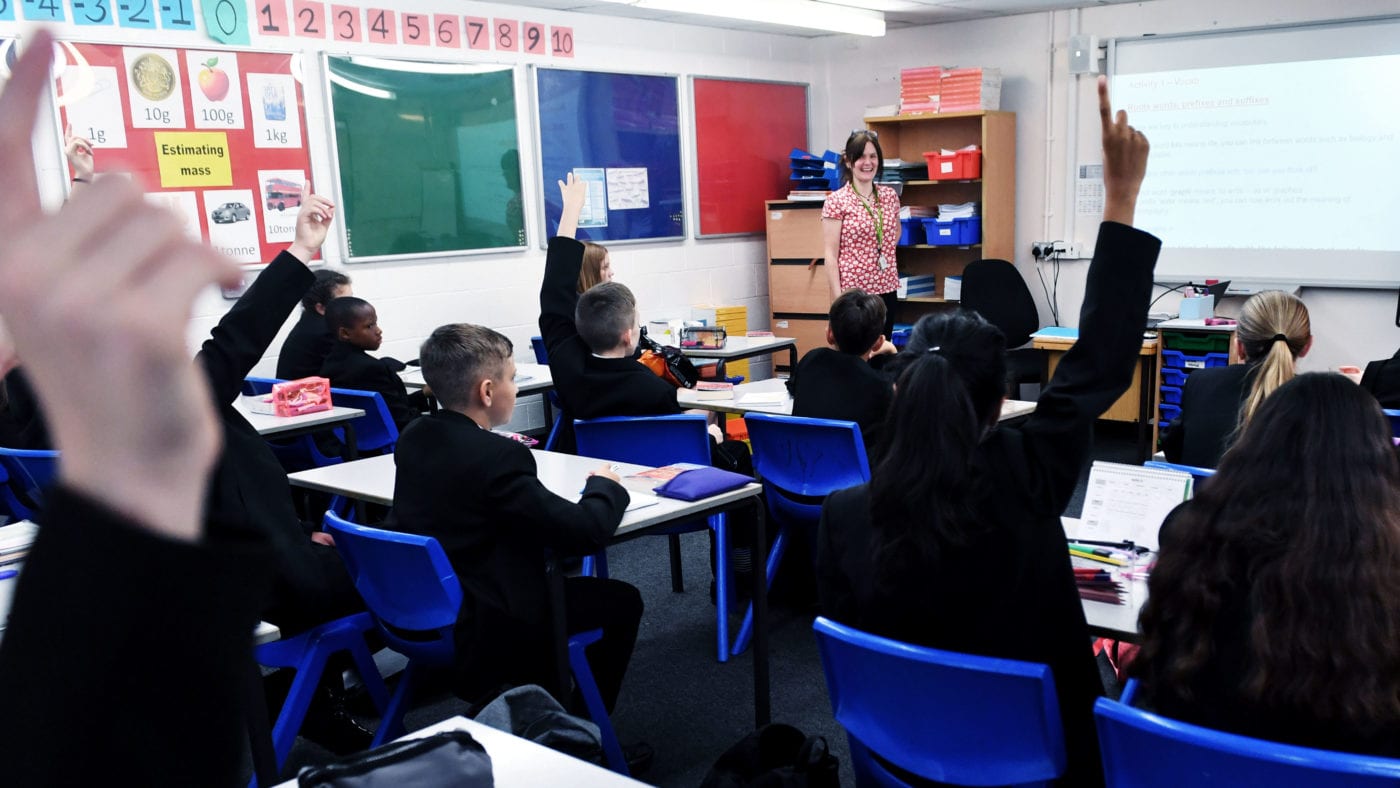The culture wars continue unabated, indiscriminately gobbling up institutions as varied as banks and the police, destroying careers, cancelling events and demolishing all perspective and common sense in their Woke wake. In its relentless, permanent state, this revolution in public discourse is Leninist in flavour, but sadly lacks any unifying theory that would dignify it as anything more than an often incoherent and illogical collections of prejudices and misconceptions.
Nothing, and no one, it seems, is out of bounds. Not even schools. Last week several campaign groups, including Sex Matters, the LGB Alliance, and Transgender Trend, wrote to Education Secretary Gillian Keegan, to demand a review of schools’ policies on gender and self-identification. In a letter co-signed by six organisations and published in The Times in October these campaigners argue that such a review is necessary because:
‘Parents contact us every week, distraught that a school is socially transitioning their child without adequate consideration for the child’s mental and physical health, and sometimes without even consulting them. Parents are told that if they raise concerns, they may be treated as a danger to their child and referred to social services.’
As someone who has worked in, and inspected schools, for over 20 years, I should say that getting any information from schools about the mental and physical wellbeing of their students is, understandably, extremely difficult. Confidentiality and trust are fundamental to any successful and supportive school pastoral programme. Perhaps because of this, anecdotal evidence is frequently used instead, and is taken as reliable data; headlines quickly follow and conclusions are reached before anything like a balanced analysis of the issues has occurred. I would question what ‘social transitioning’ means in a school context here, but if some schools are actively trying to influence a child’s gender identity, why are Ofsted or the Independent Schools’ Inspectorate not directly involved? In other words, where is the evidence beyond parental complaints? What’s the full story?
But the letter goes further, calling for a ‘Cass Review of Education’ that extends to what is taught in the classroom. The signatories demand from the Secretary of State that ‘a review of curriculum and teaching materials is also needed. We would encourage you to think about this within the framework of impartiality’.
I reach for my board eraser whenever I read of organisations, irrespective of their political positions, calling for curricula to be changed to reflect their own agenda. It is the same tendentious, misguided impulse to do ‘the right thing’ that resulted in OCR removing writers such as Larkin and Hardy from GCSE English Literature in order to ‘diversify’ the curriculum. And who decides that something is impartial? What right does any organisation have to decide what children learn? The direction of travel for both sides may be in the opposite direction, but they end up in the same limiting, censorious destination.
You could argue that any such ‘review’ is not only unnecessary, but impossible to successfully undertake. No school is required to have a policy on gender, and if they do then it will be routinely checked during inspection. If any Cass-like review was undertaken, who would conduct it? Serving teachers? Retired teachers? Campaigners from both sides? Other ‘professionals’ who work, broadly, in education? How would any review be consistent and fair with, say, faith schools, secular schools, independent girls’ schools, state boys’ schools, coeducational, progressive boarding schools, non-selective, traditional day schools…the list goes on, but if you can’t apply the same requirements to all schools, and those conducting the review cannot ask the same set of questions of all school leaders, then you will not have a review that all schools will support.
Any review would need to be a requirement from the Department for Education, meeting not just a perceived need, but one that is based on hard (and wide) evidence that sees such trends as being potentially harmful to young people. The motivation, evidence, and outcome of such a review is questionable. That’s not to say that we should not debate such subjects, because what schools do need is clear guidance from the DfE about gender identity and the appropriate level of support expected of schools. This would help schools navigate not just the difficult issues we deal with, but also assist us when we get dragged into these areas of disagreement. Unsurprisingly, and despite calls for such guidance, the DfE has dragged its heels on publishing anything substantive.
Schools are easy targets for campaigners: they project their own priorities onto us, demanding that we change to reflect often transient concerns. They can also misread and misrepresent what a school is doing because they are rarely equipped with all the information. Reasoned discussion is replaced by hysterical overreaction, and as the clamour to be heard gets ever more intense and shrill, what is often forgotten is that at the heart of these disagreements are young people with their own individual, complex needs.
Teachers should protect them, not seek to use them as props to their own political campaigns; and their classrooms should not be disputed territories claimed by either left or right-wing activists. They should remain, wherever possible, neutral and safe places removed from the culture wars. Such a possibility seems, with every academic year that passes, increasingly naive. But politicised schools are rarely happy places and, despite what we hear on social media, most students and teachers do not want to be annexed in this never-ending conflict.
Click here to subscribe to our daily briefing – the best pieces from CapX and across the web.
CapX depends on the generosity of its readers. If you value what we do, please consider making a donation.


